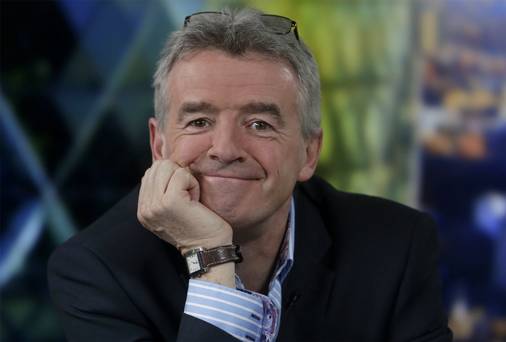Ryanair chief, Michael O’Leary, gave us a masterclass in interview techniques recently when he was on BBC Breakfast. He was being interviewed about the announcement of more than 3,000 redundancies. Despite the damaging topic, Michael O’Leary managed to craft the interview to suit his own agenda beautifully. This goes to show that even when the questions are tough, with the right planning, you can play it to your advantage.
Here are my top tips to nailing that awkward interview:
#1 – Look the part
First impressions matter and how you present yourself is key. Experts suggest that you have 30 seconds to make an all-important good one.
Take a look at Michael O’Leary. From the outset, he was in control. He looked a little dishevelled, conveying how hard he is working – aligning himself with his staff. The Ryanair banners behind him looked as though he had ordered them cheap for delivery the night before. None of this was by accident – he needed to align himself with his audience and through the visuals he did.
It would have been shameful for him to have discussed redundancies and the company’s financial difficulties dressed in a designer suit and Rolex watch, after all.
#2 – Answer the tough questions
There is nothing that exudes confidence more in a leader than when they stand up in front of millions and answer tough questions candidly.
In his interview, Michael O’Leary didn’t shy away from any of the difficult questions.
“Are these pilot redundancies fair?”
“Is it true that you may be closing regional operations?”
“When would people get their refunds?”
He answered them, so it seemed, as best he could. He even admitted that he did not know exactly when to question three. These are “unprecedented times” after all – who can know? The public, though frustrated, no doubt appreciated the honesty.
>See also: What is CRM and what does it do? Best CRM software for mid-sized businesses
#3 – Speak to your audience
Yes, on broadcast interviews the expert is answering questions posed by a journalist. However, savvy interviewees may seem like they are speaking to the interviewer, but in reality they are speaking directly to the audience that they so choose.
Answering the question as to whether the redundancies were fair, O’Leary did as much internal communication as external by talking about the conditions which led to the layoffs. He spoke directly to Ryanair’s shareholders and employees.
As for closure of regional operations, he used data to rebut the tough questions. What it showed was that he was prepared – as a leader should be – and that came across. He directed his answers to frustrated customers and apologised while giving explanations with solid facts where he could – admitting that he did not know, where he couldn’t.
He spoke candidly to every audience he intended to. Subtly, he spoke to the most important audience of all: the British government.
#4 – Be clever
O’Leary, like the rest of us, had witnessed the massive backlash that Richard Branson faced over recent weeks having asked the government for a Virgin bail-out. The Ryanair boss did the interview with one underlying agenda: to not request government funds directly. There is no doubt in my mind that he had one clear mission and that was to let the government approach him.
His implied threat of withdrawal from regional airports – the damage that it would do to local economies – was more than enough to do the job. He wanted to position discussions with local and central government so that the airports his airline uses get the support that they desperately need. Ministers, I am sure, sat up and paid attention – after all, whether you like him or not, when O’Leary talks industry listens.
>See also: 7 of the best HR consultancy companies in the UK
#5 – Invest in an adviser
Any communications adviser worth their salt will help plan your strategy and ensure that you are prepared. As advisers, they should advise on your everyday communications needs as well as the tough interviews. These must go hand in hand. They act as sounding board to bounce ideas and test how they will be received internally as well as externally. Essentially, they bring the outside world in to the boardroom – something near impossible to do from the inside.
The interview lasted a mere five minutes but it was a masterclass in how to use the media to push your agenda. The techniques listed above, work for print media too, as well as for your internal communications.
We need to see more of this kind of leadership over this pandemic. Your employees deserve it and your stakeholders demand it.
There is much space for new experts to fill the column inches and airtime right now. Invest now in a communications advisor, plan your strategy, and when the upturn comes (which it will) you will reap the benefits.
Giselle Daverat is founder of communications specialists GD Consulting
Further reading
Outsourcing your business HR: when to do it, the benefits and the pitfalls







